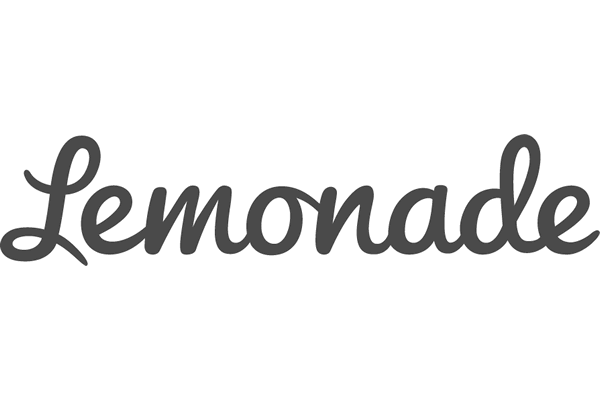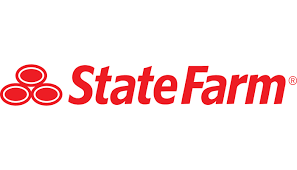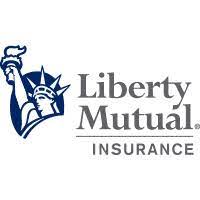With so many home insurers out there, it can be extremely challenging to determine which one is the best for your budget and needs. In 2025, there are a variety of options when it comes to the best cheap home insurance -- from standard coverage to specialized protection. Our experts have combed through homeowners' policies and rates to come up with options for the best cheap home insurance.

Bottom Line
Mercury offers homeowners insurance in 10 states and is the leading independent agency writer of car and home insurance in California. Mercury has over 9,400 independent agents. In addition to low rates, Mercury gives up to a 15% discount on your homeowners policy, plus up to 14.5% on your auto policy when you bundle.
Pros
- AM Best rating of A
- Customizable policies
- Price bundling
- Easy to achieve discounts
- Some of the lowest homeowners insurance rates in the industry
Cons
- Only available in 10 states
- Above average number of complaints relative to other companies of similar size
Discounts available
- New home (0-9 years)
- Multiple policy discount
- Fire protective devices
- Theft protective devices
- Water leak detection systems
- Loss free (three years or more claims-free)

Bottom Line
For over 160 years, Travelers has been one of the most trusted names in insurance. Travelers has changed with the times, expanding its insurance offerings and coming up with innovative ways to offer home insurance discounts. For example, you can save up to 5% if your home is already certified as a "green home" by the Leadership Energy and Environmental Design (LEED) organization.
Pros
- Full range of coverage options
- Innovative discounts (including green home coverage)
- Financial security
- Competitive homeowners insurance rates in most states
Cons
- Less-than-satisfactory customer service
- Discounts vary by state
Discounts available
- Multi-policy discount
- Home buyer discount
- Loss-free discount
- Protective device discount
- Green home discount

Bottom Line
Nationwide offers benefits that would typically be add-ons -- like credit card coverage -- as part of its standard homeowners policy. The best cheap home insurance is not always the one with the rock-bottom price. It's sometimes the policy with the most coverage at the lowest price. Free add-ons are an excellent place to start.
Pros
- Offers ordinance coverage that allows for rebuilding to current building codes
- Credit card coverage that pays for unauthorized transactions
- Ample discount opportunities
- Huge network of agents
Cons
- Below-average customer satisfaction ratings
- Limited customer service hours for sales and service
Discounts available
- Multi-policy discounts
- Protective device discounts
- Claims-free discount
- Home renovation discount
- Roof discount
- Home purchase discount
- Prior insurance discount
- Gated community discount
- Smart home discount

Bottom Line
Allstate offers some of the most generous discounts in the industry, which includes a discount up to 25% when you bundle home and auto policies, up to 20% when you switch to Allstate without a recent home insurance claim, 10% loyalty discount, and 5% automatic payment. Allstate also has an extensive network of agents.
Pros
- Customizable coverage options
- Many discounts available
- Large Allstate agent network
Cons
- Premiums can be costlier than some competitors
- J.D. Power customer satisfaction rankings lower than average
Discounts available
- Multi-policy discount up to 25%
- Responsible pay discount
- Claims-free discount up to 20%
- Welcome/loyalty discount up to 10%
- New home buyer discount
- Automatic payment discount up to 5%
- Protective device discount
- Early signing discount up to 10%

Bottom Line
Lemonade is a top destination for customers looking for cheap home insurance, with premiums starting as low as $25 per month. The company makes shopping for insurance easy by offering an all-online application process and instant answers. Policies can also be managed primarily through their app or online.
Pros
- Unused premiums are donated to charity
- Plans start at $25/month
- Many claims are paid instantly
- Easy online application process
Cons
- Coverage isn't available in all states
- There are limited options for bundling coverage
- No in-person support
Discounts available
- Protective device discount
- Bundling discount
- Annual-pay discount

Bottom Line
Most insurance companies offer a policy perk or two. For example, free claims forgiveness is available to Farmers customers who have not filed a homeowners insurance claim in five years. While free claims forgiveness is somewhat common among auto insurance carriers, it rarely applies to a homeowners policy.
Pros
- Unique money-saving opportunities
- Declining deductibles
- Eco-rebuild coverage
- Wide variety of home insurance discounts
Cons
- Average customer satisfaction ratings
- Can't buy your policy online
Discounts available
- Multiline discount
- ePolicy discount
- UL-approved roofing materials discount
- New home discount
- Protective devices discount
- Home safety discount
- Green certifications discount
- Claims free discount
- Connected home discount
- Rent-to-own discount
- Preferred payment discount
- Good payer discount

Bottom Line
State Farm notes on its website that you can save up to $1,127 on auto and home insurance. If you have an auto insurance policy with them, they state that you can add a homeowners, renters, condo, or life insurance policy that can save you up to 17% on home insurance premiums. State Farm offers customizable homeowners policies that include optional coverage for pets, identity theft, and water backup.
Pros
- Multiple discounts
- AM Best rating of A++ (Superior)
- No. 1 in overall customer satisfaction, according to J.D. Power's 2022 U.S. Auto Insurance Study for the Southwest.
- Large network of more than 19,000 agents
Cons
- Discounts are limited in certain states
- State Farm premiums vary widely
Discounts available
- Bundled discounts
- Home security insurance discount
- Roofing discounts

Bottom Line
Liberty Mutual has been in business for over 110 years and is one of the most respected names in the industry. As the fourth-largest homeowners insurer in the U.S., the company is known for two things: an AM Best rating of A, indicating substantial financial resources, and its strong philanthropic efforts, including helping the homeless, promoting accessibility for people with disabilities, and supporting education in underserved communities.
Pros
- One of the least expensive providers in our ratings
- Multiple discounts, including 10% of purchasing online (in most states)
- Can manage policy and file claims through mobile app
- Optional coverage for water back-up
Cons
- Almost three times the average number of customer complaints
- J.D. Power customer satisfaction rankings lower than average
Discounts available
- Multi-policy discount
- Claims-free discount
- Safe homeowner program discount
- Early shopper discount
- Newly purchased home discount
- New/renovated home discount
- New roof discount
- Multi-policy discount
- Insured-to-value discount
- Preferred payment discount
- Paperless policy discount
How is the cost of home insurance determined?
On average, U.S. homeowners pay around $1,800 annually for coverage. There are many factors that go into determining the cost of that policy. The size of your home, its value, and its location all impact how much you can expect to pay for coverage. Other important considerations are the age and condition of your house, and if your home's location may be prone to extreme weather or other potential disasters.
Additionally, the kind of coverage you choose -- such as liability protection or extra living expenses -- will also factor into the overall cost. If a homeowner remodels their home or makes improvements, the house instantly becomes more expensive to rebuild. That is also likely to result in an increased premium. Ultimately, home insurance is tailored to meet your individual needs, which means cost will vary from one policyholder to the next. Here are some of the other factors that go into determining annual premiums:
- Location
- Cost to have home rebuilt (replacement cost)
- Value of personal property
- Level of coverage
- Coverage limit chosen
- Home insurance deductibles
- Age of home
- Style of home
- Materials used in construction
- Custom features
One thing to keep in mind about homeowners insurance is that it can be customized to fit a homeowner's needs and budget. For example, a homeowner looking to save money may decide to skip add-ons like flood insurance or earthquake coverage (depending on where they live and the wisdom of the decision). Another may opt for a higher-than-average deductible to keep premium costs down.
How can I keep the cost down of my homeowners insurance policy?
- Shop around. Request an insurance quote from a minimum of three companies. While every insurance provider may look alike at first glance, they each possess unique characteristics. For example, one may cost less simply because it spends less on advertising.
- Opt for a higher deductible. The deductible -- the amount the homeowner must pay toward a loss -- plays a role in the overall cost of a home insurance policy. In a nutshell, the higher the deductible, the lower the premium cost. Anyone who chooses a high deductible should make sure they have enough put away in an emergency savings account to cover their full deductible if they need to make a claim.
- Bundle policies. It can pay to have insurance policies from the same company. For example, a homeowner can save by bundling auto, home, and life insurance.
- Install security devices. Anything security-related -- from smoke detectors to dead-bolt locks -- can impact the cost of homeowners insurance.
- Add safety features. For example, if a homeowner lives in an area prone to hurricanes, installing shatterproof glass or reinforcing their roof can bring down the cost of their insurance premiums.
What are typical home insurance discounts to look for?
Each company offers its own list of discounts. Here are some of the most common:
- Multi-policy discount
- Safety feature discount
- New home discount
- Autopay discount
- Loss-free discount
- Pay-in-full discount
- Protective device discount
- Green Home discount
- Paperless policy discount
- Affiliation discount (tied to specific trades, professional organizations, and universities)
What other factors should I consider besides price when selecting home insurance?
- Look for a company that provides the type of service preferred. What's essential to one homeowner may not be at all important to another. For example, some may prefer to purchase and manage their homeowners policy online without dealing with a real person. Another may want human contact and enjoy the option of being able to pop into their insurance agent's office.
- Check customer service ratings. We include customer service information in our insurance reviews because customer service is vital in the event of a loss. Say one homeowner purchased a policy online in the middle of the night without ever speaking to a company representative. Another sat across a desk from an insurance agent to buy a policy. In either case, it's important to know what kind of service they can expect to receive if their home burns to the ground or the roof blows off during a severe thunderstorm.
- Don't just look at the price. It's possible to purchase cheap homeowners insurance while still securing the level of protection desired. The sweet spot is when a policy provides plenty of coverage at a competitive insurance rate. Let's say Company A offers an annual policy for $900 but includes only bare-bones coverage. Company B comes in with a quote of $1,200 but offers more comprehensive coverage. Following a loss, the homeowner will almost always come out ahead financially by having a greater level of coverage, even if it costs a bit more upfront.
One of the easiest ways to compare prices while shopping for a homeowners insurance rate is to decide what's important before requesting the first home insurance quote. For example, a homeowner might want an insurance product that provides basic homeowners insurance coverage, including dwelling coverage, personal property coverage, and personal liability. Or, they may want to find the cheapest home insurance for a house with extras, like a swimming pool or trampoline.
The trick is to request a quote from each home insurance company for precisely the same level of coverage. That way, homeowners can compare apples to apples.
Need a more comprehensive plan? Check out Motley Fool Money's guide to high-value home insurance.
| Offer | Best For | Next Steps |
|---|---|---|

Mercury Homeowners Insurance
|
Great For: Best for: low, low rates | |

Travelers
|
Great For: Best for: green home discounts | |

Nationwide
|
Great For: Best for: policy upgrades at no additional cost | |

Allstate
|
Great For: Best for: generous discounts | |

Lemonade
|
Great For: Best for: online shoppers | |

Farmers
|
Great For: Best for: free perks | |

State Farm
|
Great For: Best for: bundling | |

Liberty Mutual
|
Great For: Best for: optional coverages |
Homeowners Insurance Ratings Methodology
The data found on this page is a combination of publicly available quote data obtained directly from the carrier as well as insurance rate data from Quadrant Information Services. These rates were publicly sourced from the top ten (10) to fifteen (15) carrier markets, within each state, based on annual written premium and should be used for comparative purposes only -- your own quotes may be different.
Insurance products are then rated on a scale of one to five stars, primarily focusing on:
Pricing
With so many options for insurance across the board these days, it's easiest, and quite effective, to first look at the bottom line. Do single out competitive prices across insurance categories it's important to focus on:
- Deductibles
- Terms
- Coverage
- The fine print
Discounts
Insurance provides coverage for unexpected financial burdens and piece of mind. But it's important to check your policies and see how you can lower your premium. Insurance companies offer discounts for all sorts of things now from safety devices to good grades to automatic bill pay. Pay attention to:
- Discounts offered
- Variety of discounts
- Discount qualifications
Perks/Benefits
The benefits of insurance these days have gone far beyond just what your policy covers. Most companies and policies come with perks -- some of which may be completely unrelated to your insurance policy. Take a look at:
- Non-pricing related perks offered
- Benefits unrelated to your coverage
- Perks that stand out in the industry
- Will you actually use the benefit?
Customer Service/Claims Process
Policy research and coverage options are great, but how is the process when you have to actually use your insurance policy? The best coverage doesn't hold much value if it's a hassle to get paid out. Pay special attention to:
- How hard it is to file a claim
- If your provider has a history of resisting payouts
- The customer satisfaction scores for your provider
We're firm believers in the Golden Rule, which is why editorial opinions are ours alone and have not been previously reviewed, approved, or endorsed by included advertisers. Motley Fool Money does not cover all offers on the market. Motley Fool Money is 100% owned and operated by The Motley Fool. Our knowledgeable team of personal finance editors and analysts are employed by The Motley Fool and held to the same set of publishing standards and editorial integrity while maintaining professional separation from the analysts and editors on other Motley Fool brands. Terms may apply to offers listed on this page.